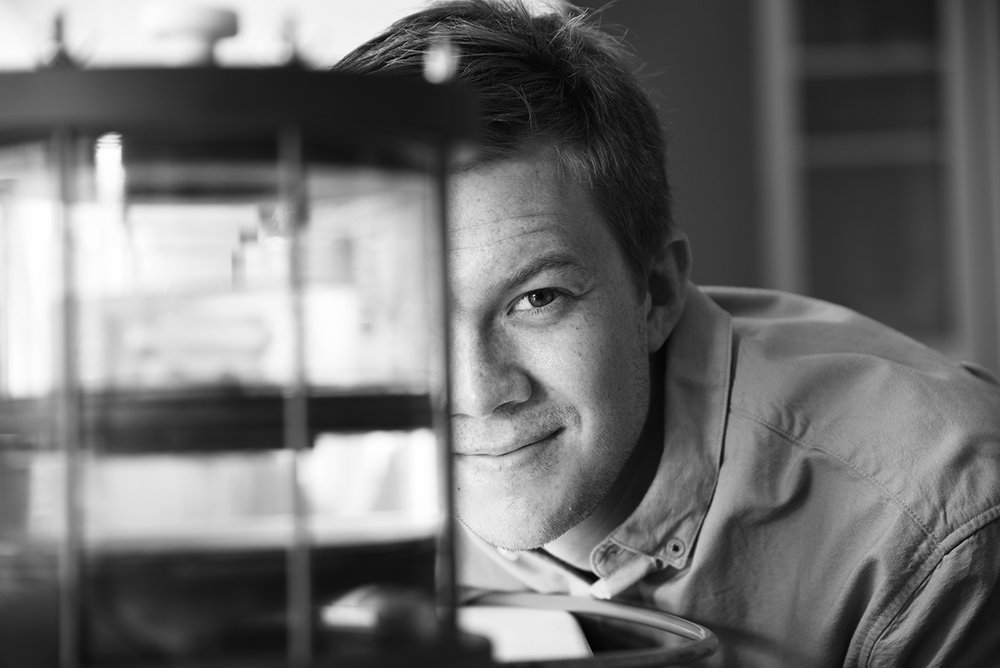Engineering student develops bioreactor to grow heart valves from human cells
This could be the end artificial heart valves. That’s the goal of Aarhus University, and in a Master’s thesis project, Buster Skyum, an MSc in Engineering student from Department of Engineering, has helped the university take its first step towards growing biologically active heart valves made of human cells. Such valves will never need to be replaced.

More and more Danes are having artificial heart valves implanted. In addition to saving life, these valves help to restore patients' functional level. However, some types of artificial heart valve will eventually degenerate and have to be replaced later in life.
Other types last for life, but require medical anticoagulant treatment along the way. Among other things, this is because artificial heart valves are not constructed from the body's own cells, and because an inactive artificial heart valve cannot repair or transform itself. This means that an artificial heart valve implanted in a child will not grow with the child's body.
That is why researchers have been working for many years to develop active heart valves built from the body's own cells, and now Buster Skyum, MSc in Engineering student at Aarhus University has contributed to this development by building a special bioreactor to grow human cells.
ALSO READ: Danish researchers invent anti-cancer molecule as a Lego kit
"The reactor has to recreate the environment around the heart. There has to be the right chemical composition of substances and nutrients as well as the right mechanical stimuli so that the cells can develop into heart valves," says Buster Skyum, and he compares his bioreactor with a sort of mixing machine, where the right ingredients have to be added to make the project succeed.
(The article continues below the picture)

Buster Skyum in front of his bioreactor, that is able to recreate the human heart environment. Photo: Jesper Bruun.
ALSO READ: Danish researchers behind new treatment for heart-valve patients
However, he emphasises that there is still a long way to go before it is possible to grow finished heart valves in his bioreactor.
"We’ve been researching this for more than 20 years, and there’s still some way to go. There’s an enormous number of components in creating natural heart valves from human cells, and the bioreactor is just a small part. It’s a whole field of research, and we also need to find the right cell types to use to grow heart valves. Then we have to build a sort of skeleton for the cells to grow on," says Buster, although he believes that within two years researchers will begin to grow heart valves made of human cells. It will probably take many more years, however before they can be used clinically.
"Being able to grow biologically active heart valves made of the body's own tissue will be a revolution in the field. For example, many children are born with defective heart valves. The condition affects the rest of their lives, because they have to go through many major operations and they constantly have to take blood-thinning medication so that their body doesn’t reject the artificial heart valve. Another down side of this is that it also makes the body more susceptible to other diseases," says Buster Skyum.
ALSO READ: New researcher paves the way for special light technology at Aarhus University
Buster is studying biomedical engineering at Aarhus University and he has a Bachelor degree in sports from the University of Southern Denmark. For him, human physiology and biomechanics have always been interesting. He chose the MSc in Engineering, because he wanted to do a Master's thesis that could be useful in real life.
"I like working with the natural-science and technological elements in sport. So it’s great to be working on something that has such great potential to help so many people," he says.
Facts
Approx. 1,600 heart-valve operations are performed annually in Denmark, and the number is rising. Heart-valve operations are very invasive, involving open-heart surgery under general anaesthesia, and the heart and lung function is briefly interrupted and replaced by a heart-lung machine.
Heart valves are replaced surgically or by using a catheter when this becomes necessary because of narrowing of one or more of the body's own four heart valves or because they start leaking. Problems with heart valves can arise because of various diseases or infections that affect the heart valves.
ALSO READ: Researchers from Department of Engineering transforms carbon dioxide into green supergas
Today, the only operations possible involve surgeons replacing the defective heart valve with an artificial valve. The artificial heart valve is either made of metal or a biologically inactive flap made of pig tissue. An artificial valve cannot grow with the body or repair damage to itself.
An artificial biological heart valve has a lifetime of up to 15 years in a human adult before it has to be replaced. In children, a valve has a shorter lifetime, since it does not follow the child's development. Furthermore, biological artificial heart valves degenerate faster in children and adolescents than in adults.
Contact
Associate professor Peter Johansen
Mail: pj@eng.au.dk
Phone: +45 41893234
Buster Skyum
Mail: buster.skyum@post.au.dk
Phone: +45 28564941
